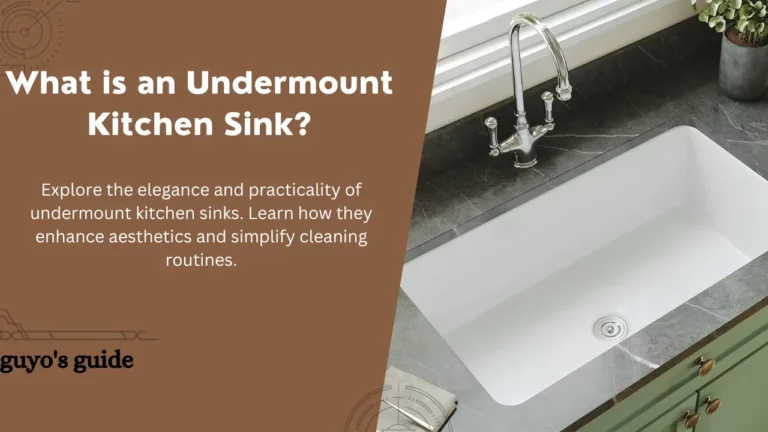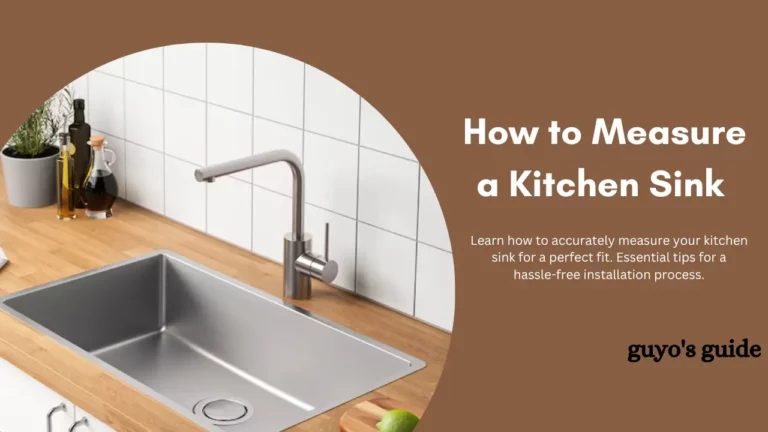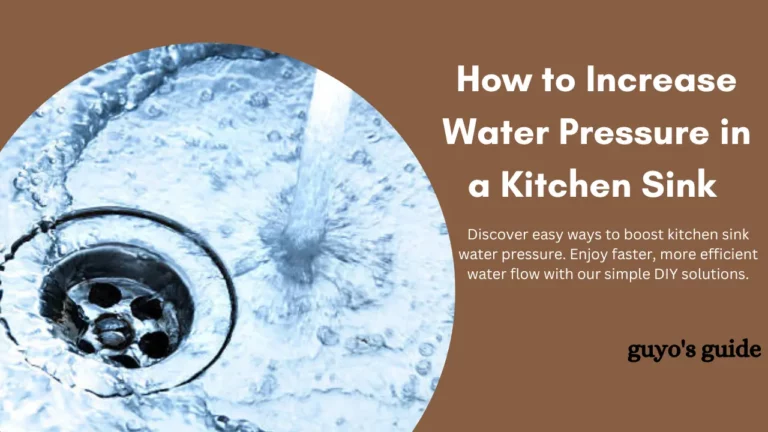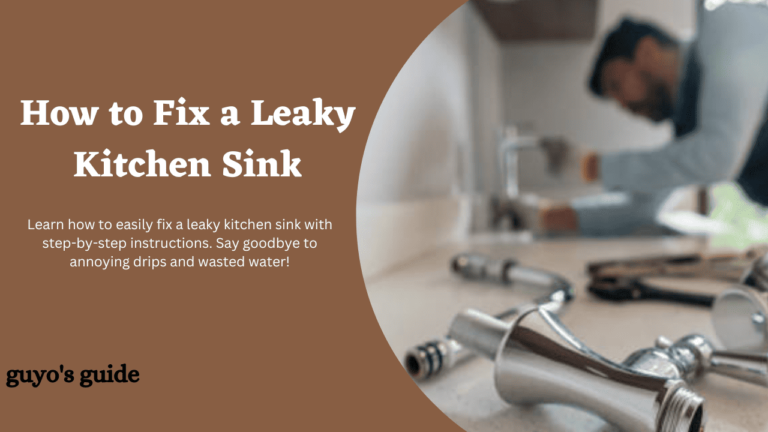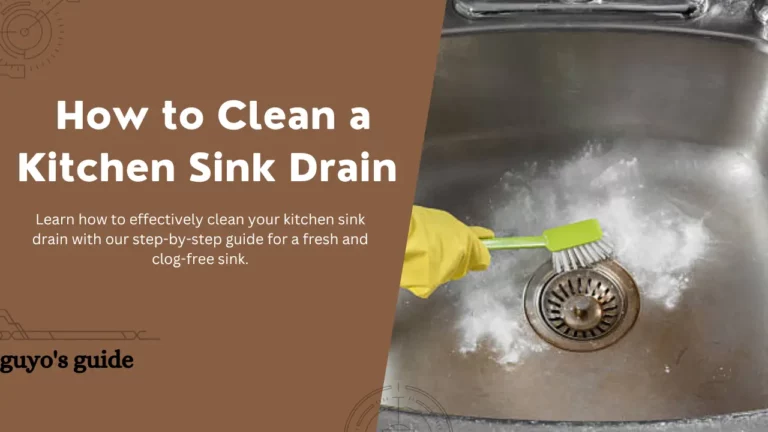13 Best Kitchen Sink Materials of 2025 (Ultimate Guide)
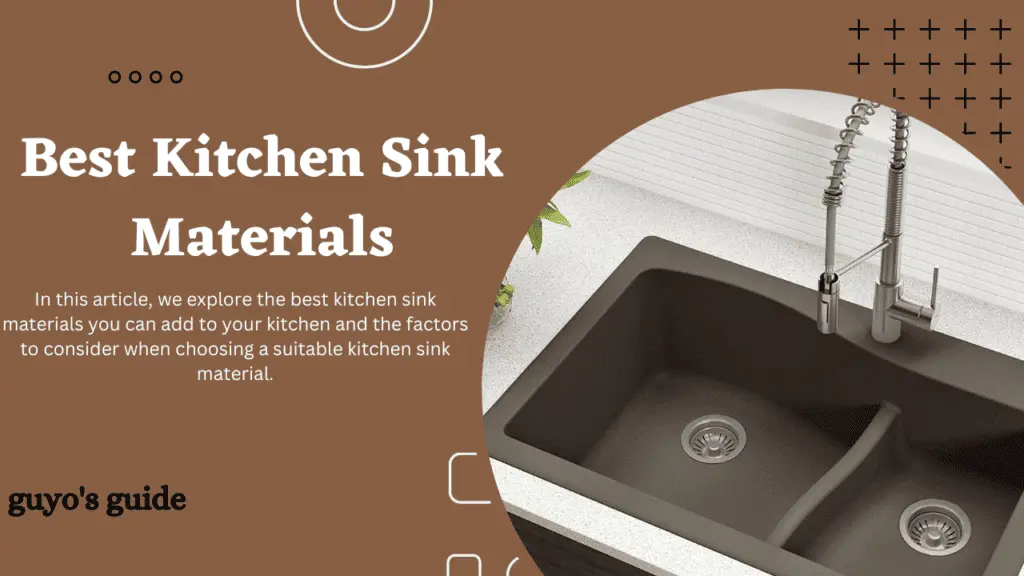
Some of the links in this post are affiliate links, meaning, at no additional cost to you, We will earn a commission if you click through and make a purchase.

Whether you are remodeling your kitchen or building a new one, the sink is one of the most important features to consider.
It’s not just about having a place to wash dishes and rinse vegetables but also about finding a material that is durable, easy to clean, and complements the style of your kitchen.
With many different materials available, choosing the best for your needs can be overwhelming.
In this article, we’ll explore the best kitchen sink materials to help you decide the best option for your home.
Let’s get started.
What is the Best Kitchen Sink Material?
The best kitchen sink material depends on individual needs and preferences. Here are some of the most popular kitchen sink materials:
1. Stainless Steel
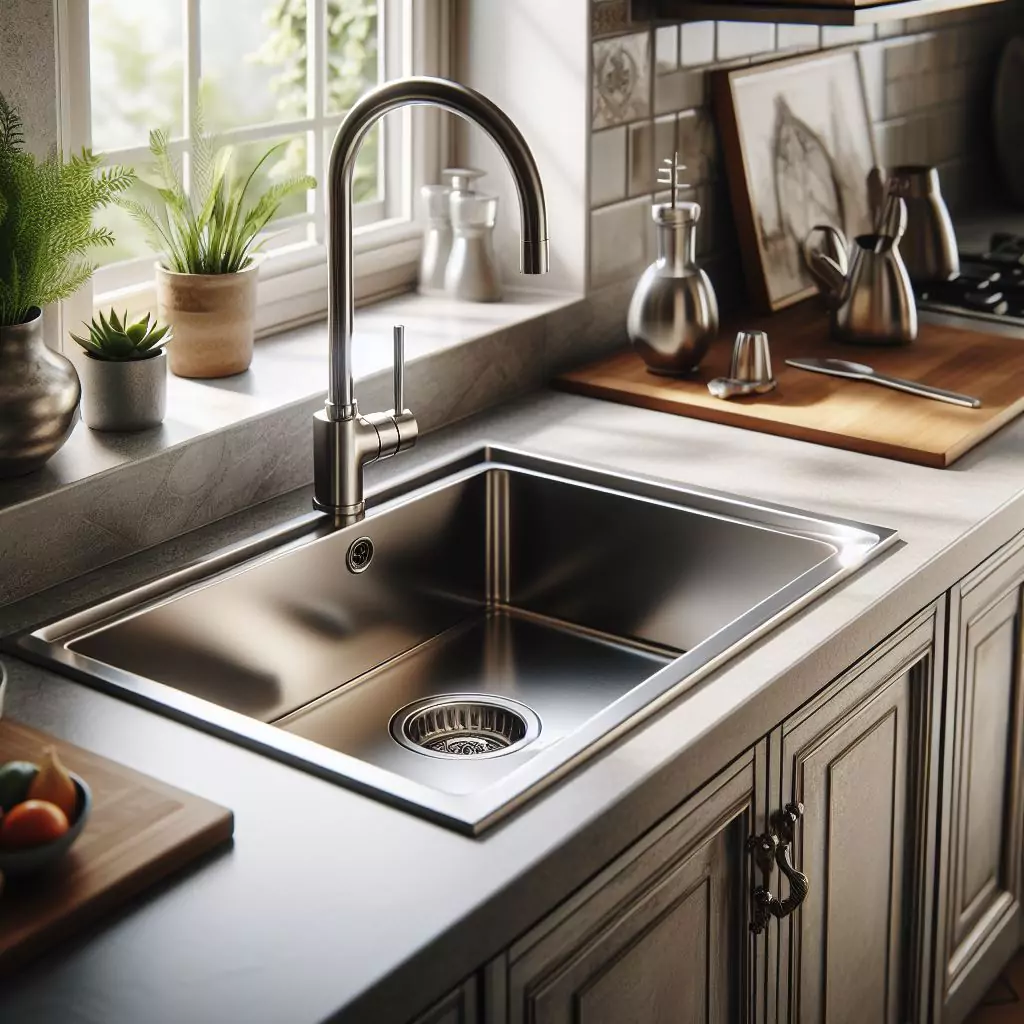
Stainless steel is a versatile material that can be incorporated into any kitchen design, from traditional to modern.
Whether you are remodeling your kitchen or building a new one, a stainless steel sink is a great choice for those who value durability, ease of maintenance, and affordability.
Features
- Stainless steel is a strong and long-lasting material, making it an ideal choice for a kitchen sink. It is resistant to scratches and dents and can withstand daily use without showing signs of wear and tear.
- Stainless steel is naturally resistant to stains, rust, and corrosion, making it a hygienic and low-maintenance choice for a kitchen sink.
- Stainless steel is easy to clean and maintain and does not require special cleaning products or techniques. Simply wipe the sink with soap and water to keep it clean and shiny.
- Stainless steel sinks are available in various styles and sizes, from single-bowl to double-bowl and from undermount to drop-in. This makes it easy to find a sink that fits your kitchen design and practical needs.
- Compared to other kitchen sink materials, stainless steel is an affordable option, making it a popular choice for those on a budget.
Pros/Cons
Pros:
- Easy to Clean.
- Durable.
- Corrosion-Resistant.
- Affordable.
- Aesthetic Appeal.
Cons:
- Prone to Scratches
- Can leave water spots, especially if hard water is used.
- Stainless steel sinks can be noisy when water hits the metal surface.
- Not Heat Resistant.
2. Cast Iron
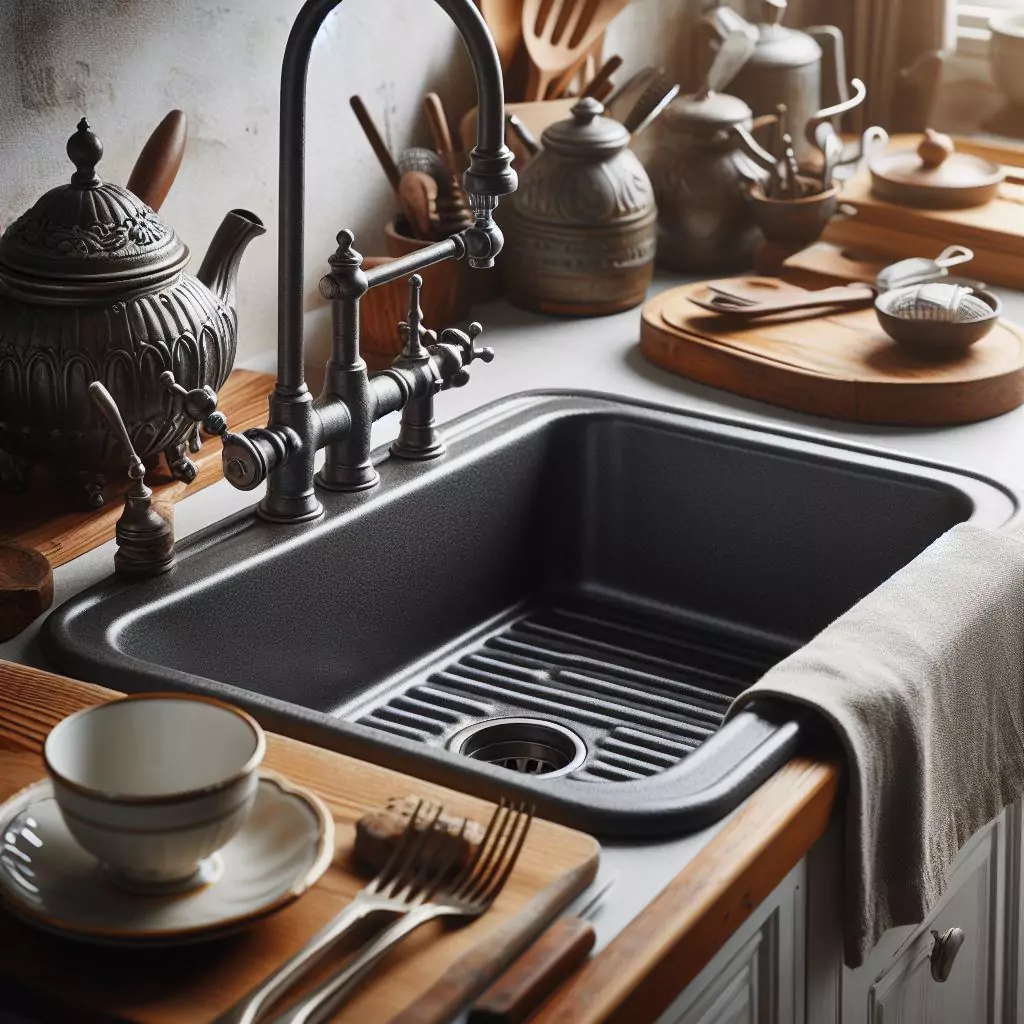
Cast iron is another popular material for kitchen sinks, known for its durability, versatility, and timeless style.
A cast iron sink is a practical and attractive option that will enhance the look of your kitchen while also standing up to daily use.
Features
- Cast iron is a strong and heavy material, making it ideal for kitchen sinks. It is resistant to scratches, dents, and chipping and can withstand daily use without showing signs of wear and tear.
- Cast iron sinks can be enameled in various colors to match any kitchen decor, from classic white to bold red or black. They can also be designed in various styles, from traditional farmhouses to contemporary ones.
- Cast iron sinks can be used to hold boiling water or hot pots and pans. This makes them a practical choice for those who frequently cook and bake.
- Cast iron sinks are relatively easy to clean and maintain and can be wiped down with soap and water to keep them looking clean and shiny.
- Cast iron sinks have been used in kitchens for generations, and their timeless style is as popular today as it was in the past. They offer a classic look that can complement any kitchen design, from vintage to contemporary.
Pros/Cons
Pros:
- Durable.
- Heat Resistant.
- Scratch Resistant.
- Noise Reduction.
- Aesthetic Appeal.
Cons:
- Heavy.
- Prone to Chipping.
- They are expensive.
- Requires Regular Maintenance.
3. Composite Granite
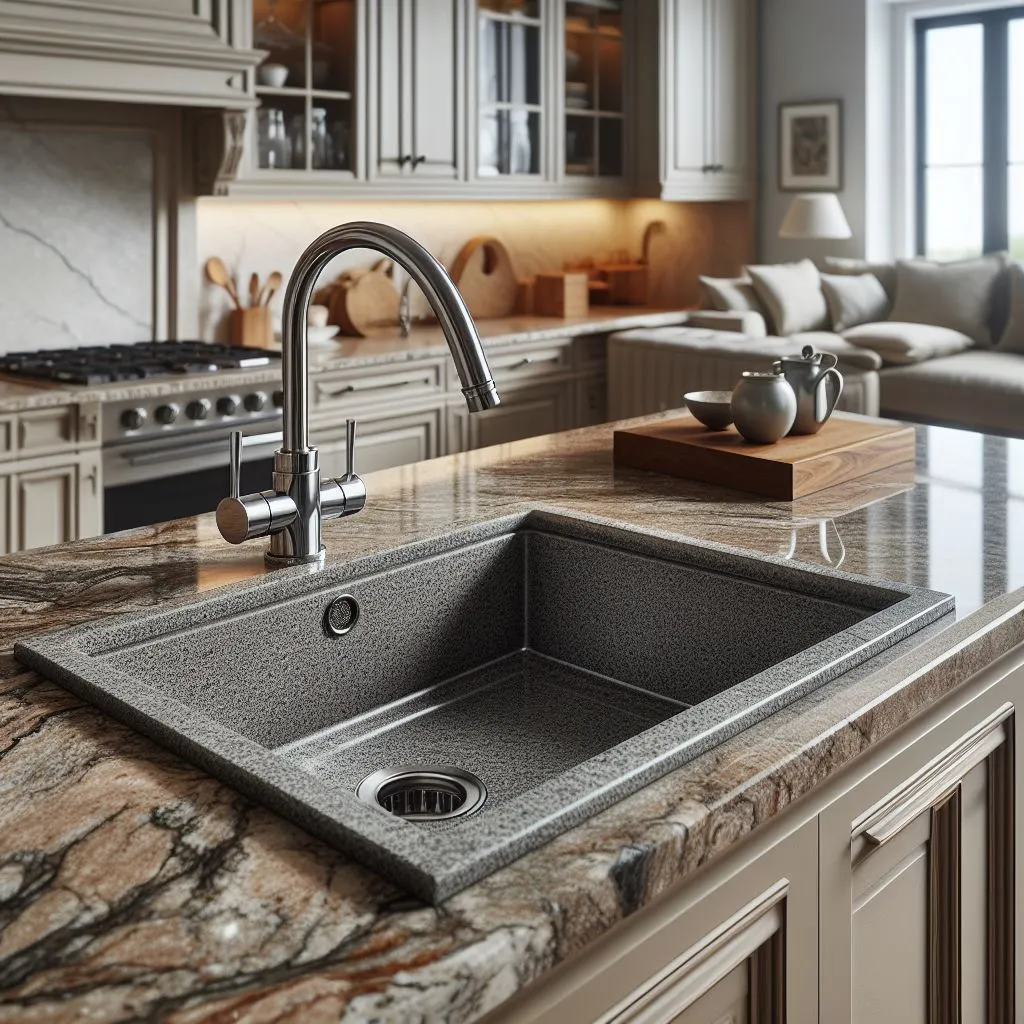
Composite granite kitchen sinks are a popular choice for those who want the look of natural stone without maintenance and upkeep.
A composite granite sink is a durable and low-maintenance option that will enhance the look of your kitchen and stand up to daily use.
Features
- Composite granite sinks are made from a blend of natural stone and resin, making them extremely durable and resistant to chips, cracks, and scratches.
- Unlike natural stone, composite granite sinks are non-porous and easy to clean and do not require special cleaners or sealing. Simply wipe the sink down with soap and water to keep it looking clean and new.
- Composite granite sinks are resistant to stains, making them a hygienic and low-maintenance choice for a kitchen sink.
- Composite granite sinks are available in a variety of different colors and styles, from traditional to contemporary, making it easy to find a sink that fits your kitchen design.
- Compared to natural stone sinks, composite granite sinks are more affordable, making them a great option for those on a budget.
Pros/Cons
Pros:
- Durable.
- Heat resistant.
- Aesthetic Appeal.
- Easy to Clean.
- They are relatively quiet.
Cons:
- Expensive.
- Prone to Staining.
- Requires Careful Handling.
4. Copper
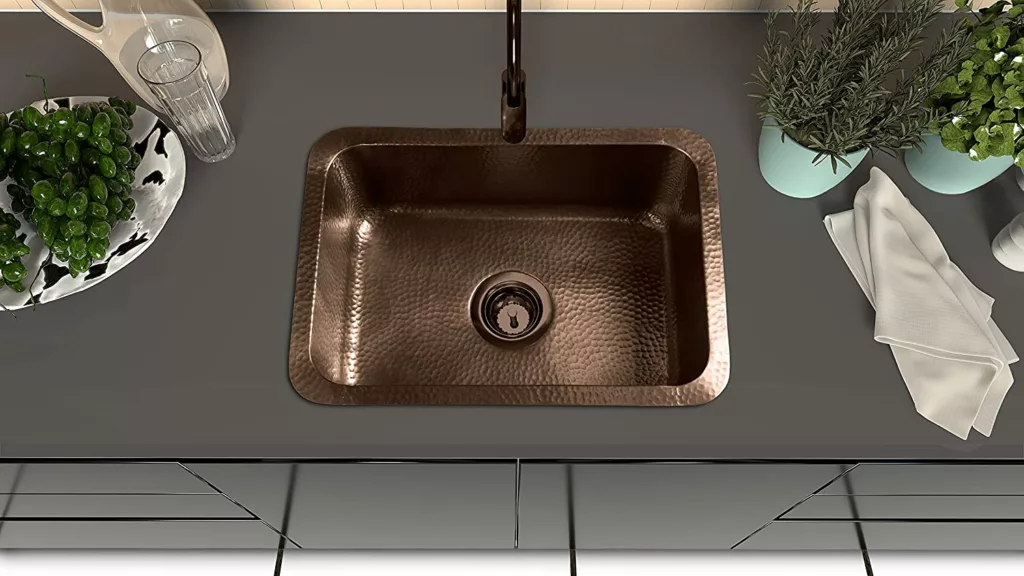
Copper kitchen sinks are a stylish and practical choice for those who want a warm, natural look in their kitchen.
A copper sink is a durable and low-maintenance option that will enhance the look of your kitchen and stand up to daily use.
Features
- Copper sinks have a warm, natural look unlike any other material, and each sink has its unique patina that develops over time.
- Copper is a strong and durable material that is resistant to chips, cracks, and scratches, making it ideal for kitchen sinks.
- Copper is a non-porous material that is easy to clean and does not require special cleaners or sealing. Simply wipe the sink down with soap and water to keep it looking clean and new.
- Copper is naturally antimicrobial, making it a hygienic choice for a kitchen sink.
- Copper sinks can be more expensive than other materials, such as stainless steel, but they are worth the investment for those who want a unique and durable sink that will last for years.
Pros/Cons
Pros:
- Aesthetic Appeal.
- Has natural anti-microbial properties, making it a hygienic option for kitchen sinks.
- Easy to Clean.
- Heat resistant.
Cons:
- Expensive.
- Prone to Scratches.
- Requires Frequent Maintenance.
- Changes Color Over Time.
- Reactive to Acids.
5. Fireclay
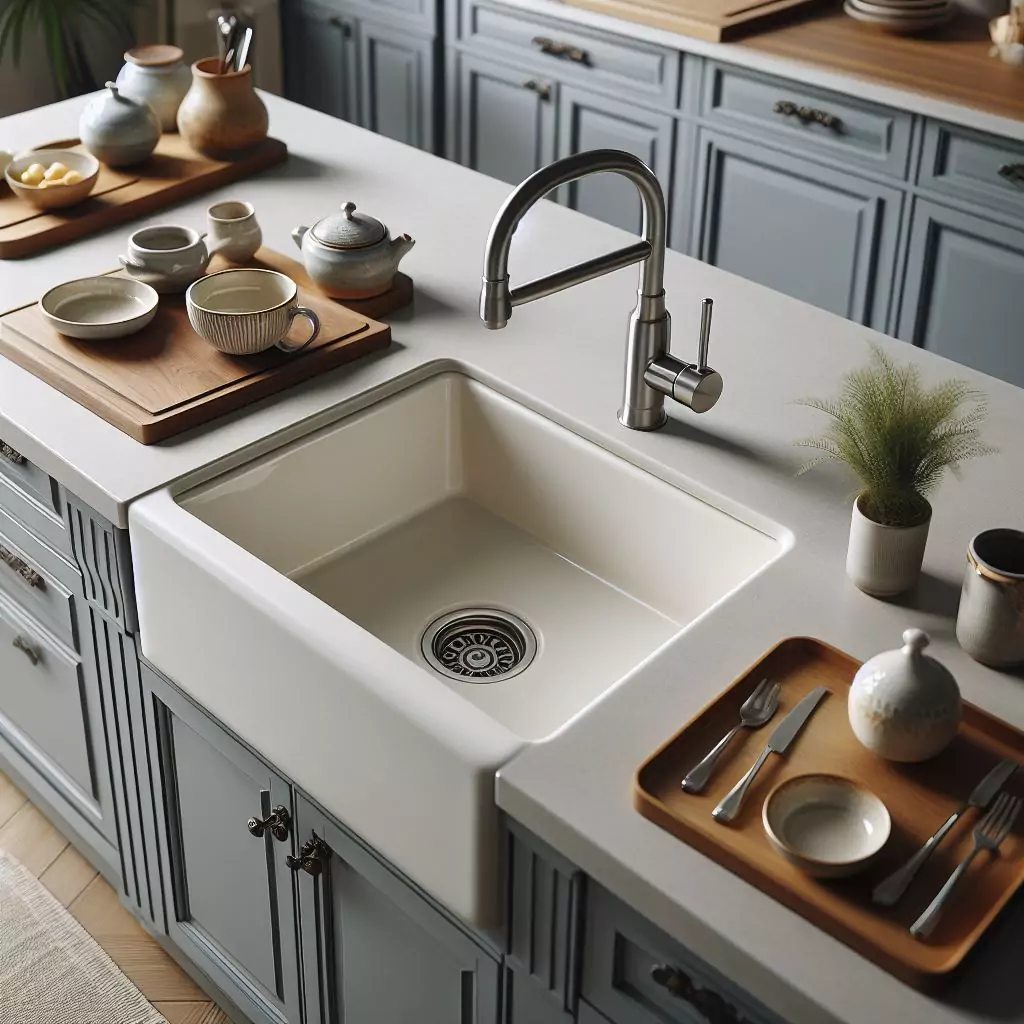
Fireclay kitchen sinks offer a classic and timeless aesthetic, reminiscent of farmhouse-style kitchens.
These sinks are crafted from a unique blend of clay and glaze, providing both durability and a charming appearance.
Features:
- Fireclay sinks have a traditional, farmhouse look that adds character to any kitchen, with a smooth, glossy surface that enhances their visual appeal.
- Known for their durability, fireclay sinks are resistant to stains, scratches, and chips, making them suitable for heavy daily use in the kitchen.
- The non-porous surface of fireclay makes it easy to clean, and it does not require special cleaners. Regular cleaning with mild soap and water is usually sufficient.
- Fireclay sinks are available in various styles and configurations, catering to different kitchen designs and preferences.
- They are well-suited for traditional and transitional kitchen styles, providing a versatile option for homeowners.
Pros/Cons:
Pros:
- Timeless Aesthetic.
- Durability.
- Easy to Clean
- Heat Resistant: Can withstand high temperatures without damage.
Cons:
- Can Be Expensive.
- May Chip or Crack with Heavy Impact.
- Requires Proper Installation Support Due to Weight.
- Limited Color Options.
6. Brass
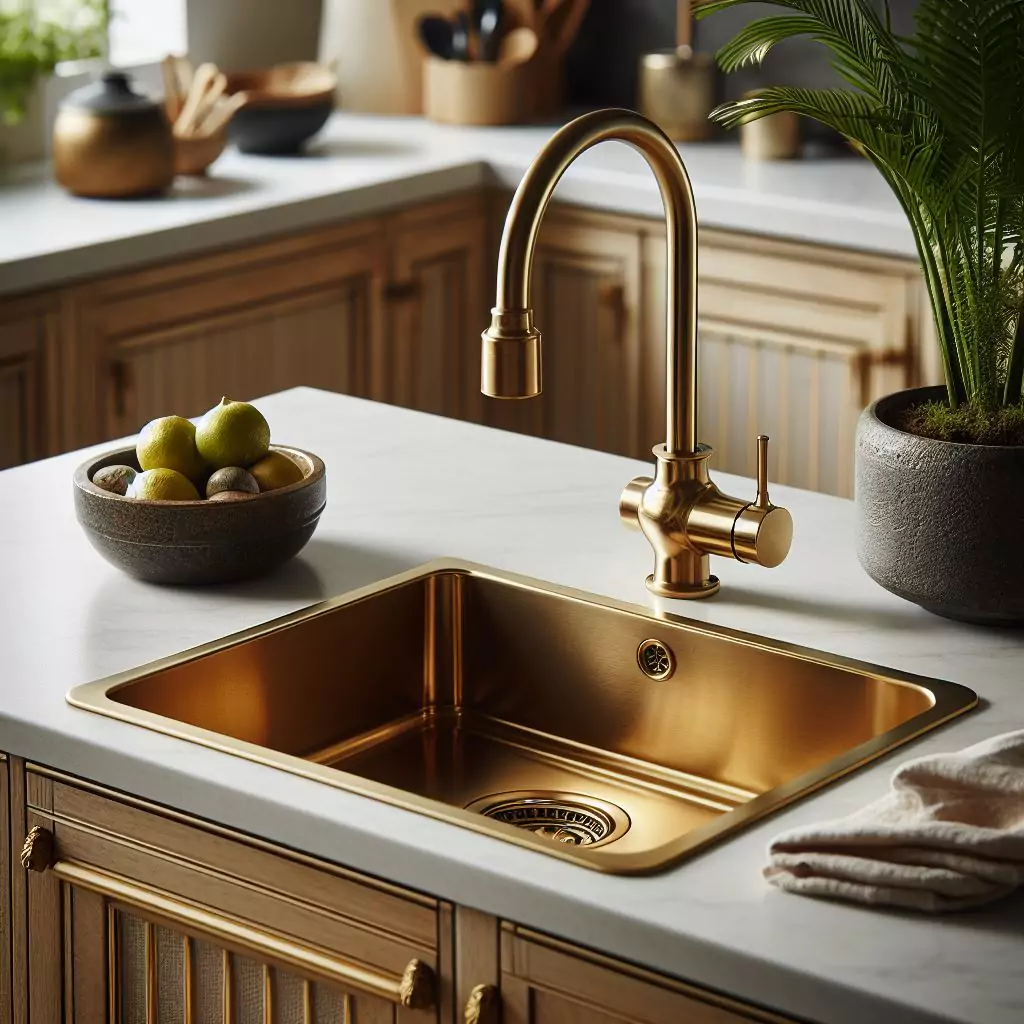
Brass kitchen sinks blend durability with timeless elegance. Composed primarily of copper and zinc, brass develops a distinctive patina over time, enhancing its aesthetic appeal.
Resistant to corrosion and easy to maintain, brass sinks offer a luxurious and durable option for a stylish culinary space.
Features
- Durability: Brass is a sturdy and long-lasting material, ensuring the sink withstands daily use and remains in excellent condition.
- Corrosion Resistance: Resistant to corrosion and rust, brass maintains its integrity even in humid kitchen environments.
- Aesthetic Appeal: The material develops a unique patina over time, adding character and charm to the kitchen sink.
- Low Maintenance: Easy to clean and maintain, requiring minimal effort to preserve its shine and functionality.
- Versatility: Brass sinks complement various kitchen styles, from modern to traditional, offering versatility in design.
- Anti-Bacterial Properties: Brass inherently possesses antimicrobial properties, contributing to a hygienic kitchen environment.
- Heat Resistance: Withstanding high temperatures, brass is suitable for handling hot water and cookware without damage.
- Environmentally Friendly: Brass is a recyclable material, aligning with eco-friendly practices in kitchen design.
Pros/Cons
Pros:
- Durable and long-lasting.
- Unique patina enhances aesthetics.
- Resistant to corrosion and rust.
- Easy to clean and maintain.
- Versatile for various kitchen styles.
Cons:
- Initial higher cost.
- Prone to scratches.
- Regular polishing may be needed.
7. Quartz Composite
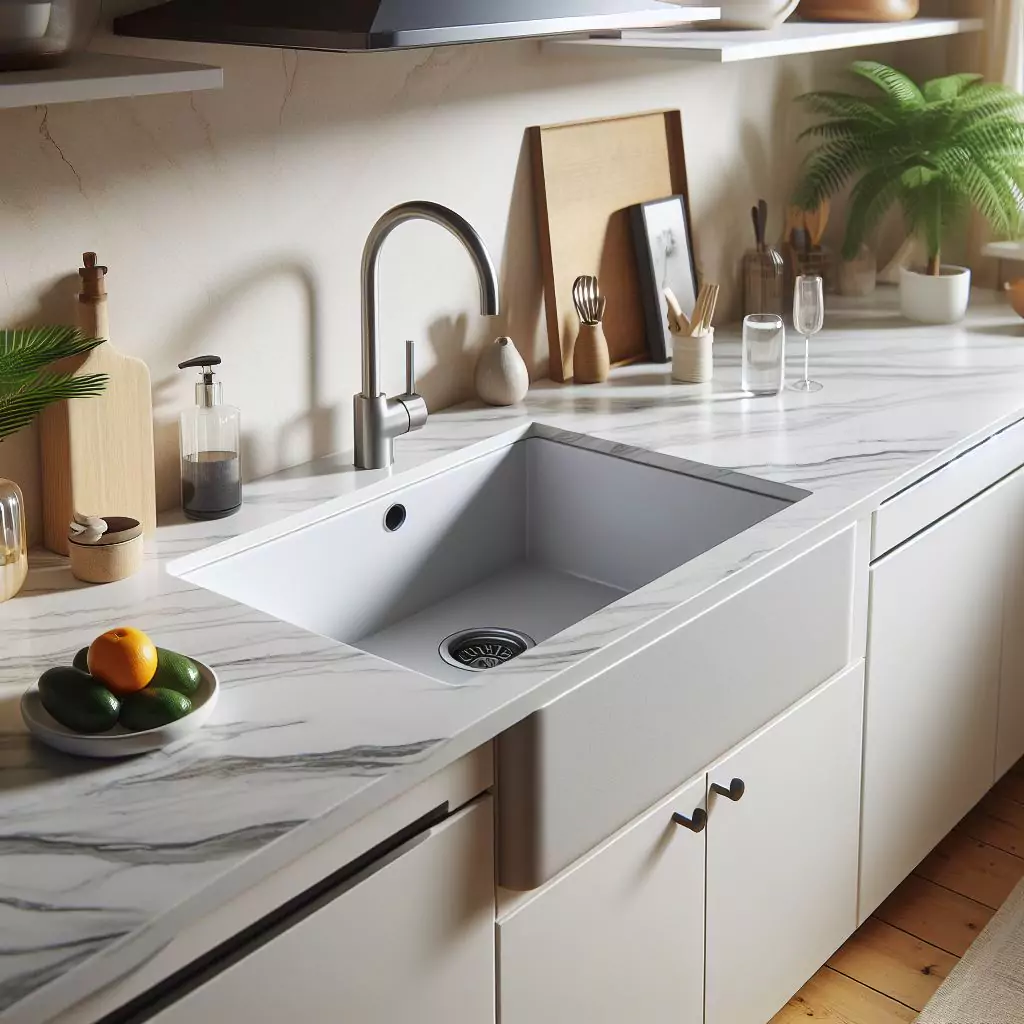
Quartz composite kitchen sinks combine quartz particles with acrylic or resin, offering a durable and visually appealing option.
Resistant to stains, scratches, and heat, these sinks provide a modern aesthetic, easy maintenance, and robust performance for a contemporary kitchen space.
Features
- Quartz composite sinks are highly durable and resistant to chips, cracks, and dents.
- The non-porous surface repels stains, ensuring easy cleanup and maintaining a pristine appearance.
- Exceptional resistance to scratches, preserving the sink’s aesthetic over time.
- Withstands high temperatures without damage, accommodating hot pots and pans.
- Available in various colors and styles, providing design flexibility for diverse kitchen aesthetics.
- Simple to clean and maintain, requiring minimal effort for long-lasting appeal.
- Naturally dampens noise, reducing the clatter of dishes and utensils for a quieter kitchen experience.
- Non-porous material inhibits bacterial growth, promoting a cleaner and more sanitary environment.
- Homogeneous color throughout the sink, ensuring consistent appearance even with wear.
- Resilient against impacts, ensuring the sink withstands daily use without visible damage.
Pros/Cons
Pros:
- Durable, resists chips and cracks.
- Stain-resistant, and easy to maintain.
- Scratch-resistant for lasting aesthetics.
- Handles high temperatures without damage.
- Aesthetic variety for diverse styles.
Cons:
- Relatively higher initial cost.
- Heavyweight may require additional support.
- Professional installation is recommended for optimal performance.
8. Cast Acrylic
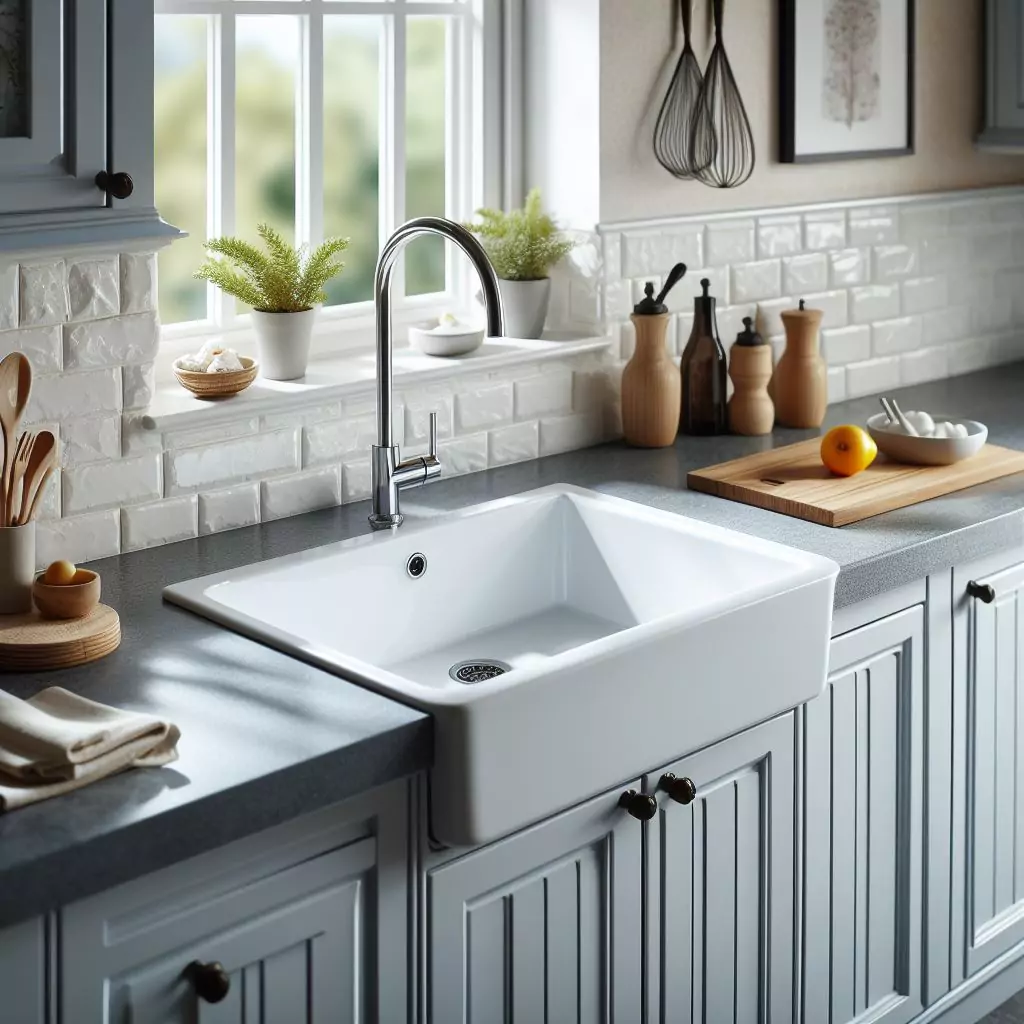
Cast acrylic kitchen sinks offer a blend of durability and versatility. Composed of a solid surface, they are resistant to stains, scratches, and chipping.
With a smooth, non-porous finish, these sinks are easy to clean, providing a modern and seamless aesthetic for contemporary kitchen designs.
Features
- Cast acrylic sinks are robust, resisting impacts and ensuring long-term durability in the kitchen environment.
- Available in a variety of shapes and sizes, cast acrylic sinks offer design flexibility to suit diverse kitchen layouts and styles.
- With a non-porous finish, these sinks prevent the absorption of liquids, making them resistant to stains and odors.
- The material is engineered to withstand daily wear, minimizing the visibility of scratches and maintaining a smooth surface.
- The smooth surface of cast acrylic facilitates effortless cleaning, reducing the effort needed to maintain a hygienic kitchen space.
- Resistant to common kitchen stains, such as coffee or red wine, cast acrylic sinks retain their pristine appearance with minimal effort.
- Able to handle hot water and withstand temperature variations, cast acrylic sinks are suitable for demanding kitchen tasks.
- Available in a wide range of colors, homeowners can choose a sink that complements their kitchen decor, adding aesthetic appeal to the space.
- Cast acrylic sinks can be seamlessly integrated with countertops, creating a sleek and modern look in the kitchen.
Pros/Cons
Pros:
- Durable, resists impacts.
- Versatile in design options.
- Non-porous, resists stains.
- Scratch-resistant surface.
- Easy to clean and maintain.
- Withstands hot water temperatures.
- Available in various appealing colors.
Cons:
- Vulnerable to high heat.
- May not match luxury expectations.
- Susceptible to visible scratches.
- Limited to mid-range budgets.
- Limited to certain design aesthetics.
9. Wood
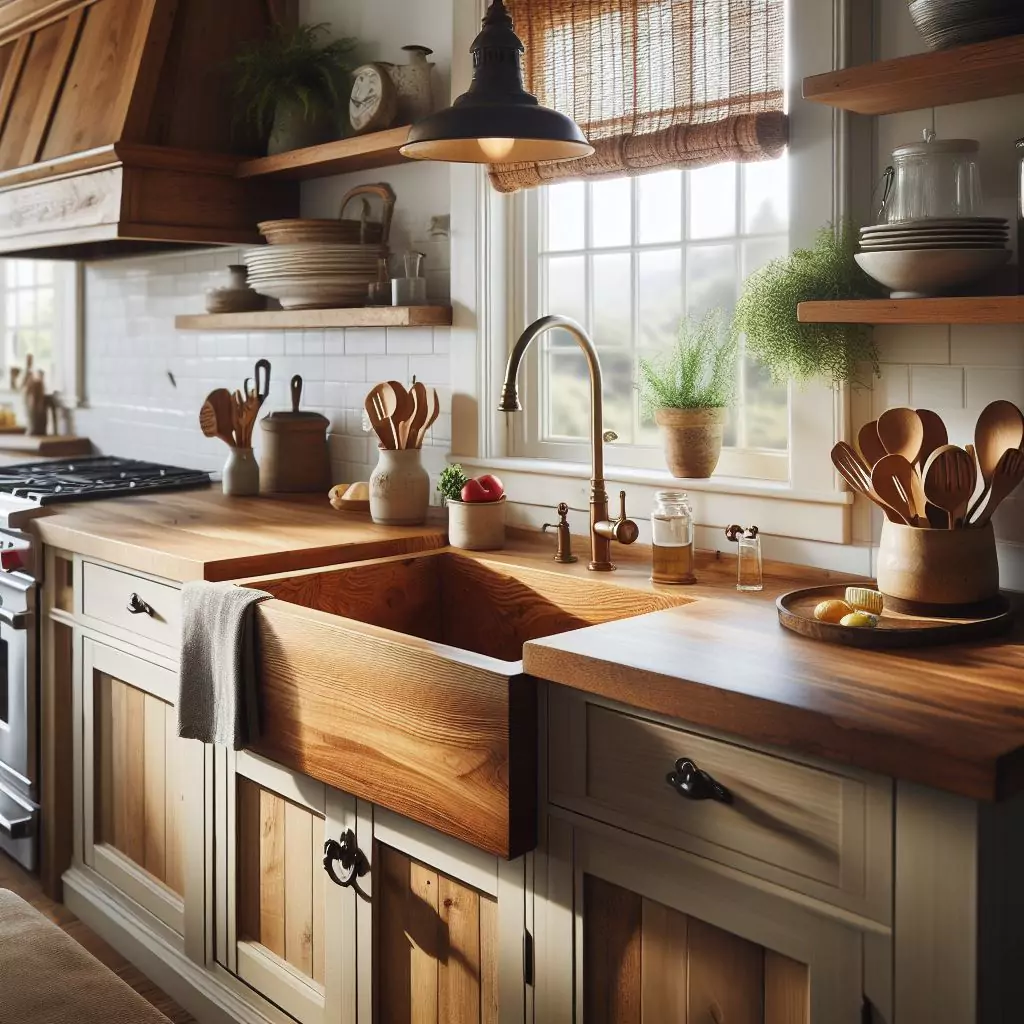
Wooden kitchen sinks offer a rustic charm and natural warmth to culinary spaces. Crafted from durable hardwoods, they provide a unique, organic aesthetic.
While susceptible to water damage, proper sealing can enhance longevity. Wooden sinks are an ideal choice for those seeking an eco-friendly and distinctive kitchen focal point.
Features
- Natural Aesthetic: Wooden sinks infuse kitchens with a warm, organic ambiance, creating a unique and inviting focal point.
- Rustic Charm: Crafted from hardwoods, these sinks exude a timeless, rustic charm, adding character and personality to the kitchen space.
- Durable Hardwoods: Designed with durability in mind, hardwoods such as teak or oak ensure the sink withstands daily wear and maintains its structural integrity.
- Customization: Wooden sinks offer flexibility in design, allowing for customization in terms of shape, size, and finish to match diverse kitchen aesthetics.
- Eco-Friendly: Sourced from sustainable forests, wooden sinks align with eco-conscious choices, promoting environmental responsibility in kitchen design.
- Warm to the Touch: Unlike other materials, wood provides a natural warmth to the touch, enhancing the tactile experience and comfort in the kitchen.
- Unique Patina: Over time, wooden sinks develop a distinctive patina, further enhancing their character and creating a lived-in, appealing aesthetic.
- Sealing Options: Proper sealing mitigates water damage, extending the sink’s lifespan and maintaining its structural and visual integrity.
- Artisan Craftsmanship: Often handcrafted, wooden sinks showcase artisanal skill, resulting in one-of-a-kind pieces that elevate the overall aesthetic of the kitchen.
- Integration with Décor: Wooden sinks seamlessly integrate with various kitchen decors, complementing both traditional and modern styles for a cohesive look.
- Sustainability: Embracing sustainability, wooden sinks contribute to responsible sourcing practices, making them an environmentally friendly choice for conscious consumers.
- Easy Repairs: Minor damages are often repairable through sanding or refinishing, providing a practical and cost-effective solution for maintaining the sink’s appearance over time.
Pros/Cons
Pros:
- Natural, rustic aesthetic.
- Durable hardwood construction.
- Customizable in design.
- Eco-friendly, sustainable sourcing.
- Warm to the touch.
- Unique patina development.
- Artisan craftsmanship on display.
Cons:
- Susceptible to water damage.
- Requires regular sealing for protection.
- Limited to certain design aesthetics.
- Potential for minor repairs over time.
- Not resistant to high temperatures.
- Prone to scratches and dents.
- Higher maintenance compared to other materials.
10. Glass
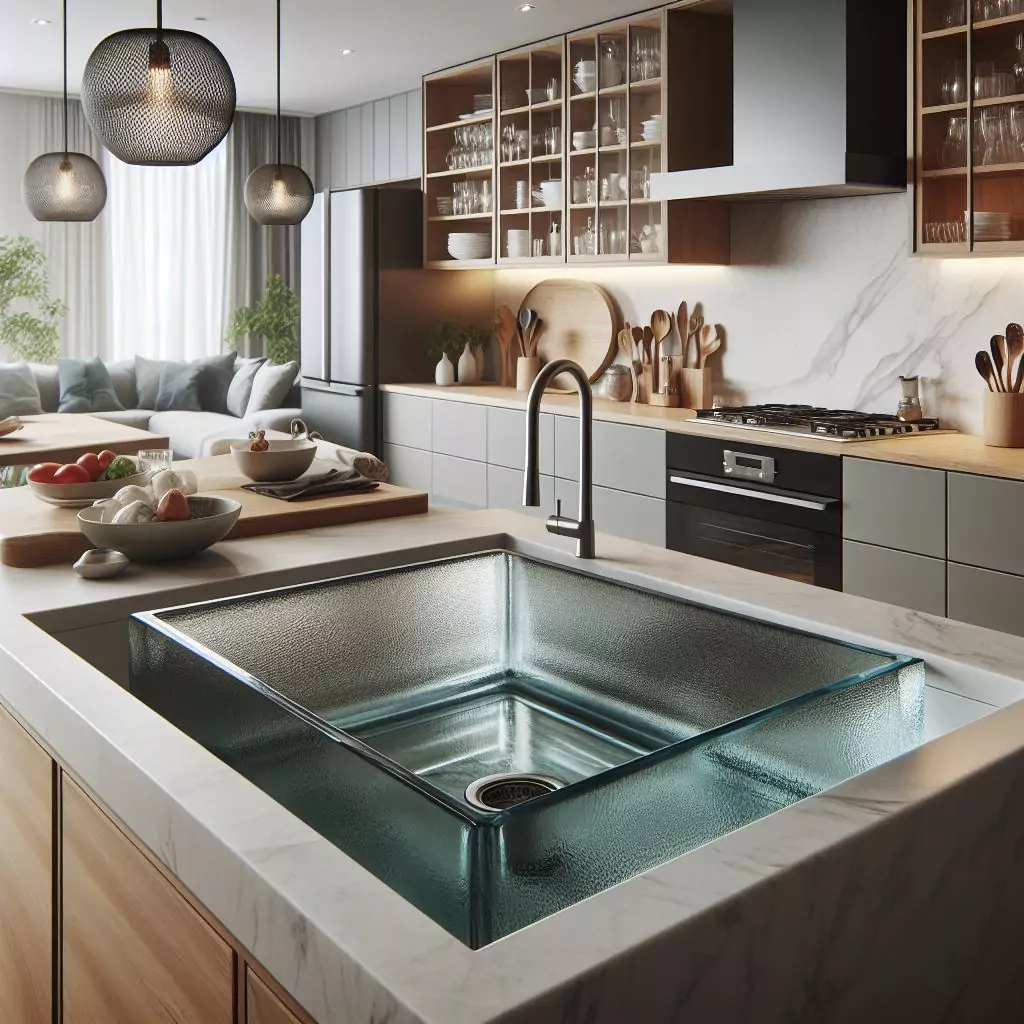
Glass kitchen sinks offer a sleek and modern design, elevating the aesthetics of contemporary kitchens.
Tempered for durability, they resist scratches and stains, ensuring longevity.
The transparent nature adds an illusion of space, making them a stylish choice for those seeking a chic, light-enhancing focal point in their kitchen.
Features
- Glass sinks impart a sleek and contemporary look to kitchens, enhancing overall aesthetics.
- Tempered glass construction ensures strength, resisting scratches and stains for long-lasting performance.
- The transparent nature creates an illusion of space, contributing to an open and airy feel in the kitchen.
- Smooth glass surfaces are easy to clean, requiring minimal effort to maintain a pristine appearance.
- Glass sinks are available in diverse shapes, sizes, and colors, allowing for customization to suit individual style preferences.
- The reflective nature of glass enhances natural and artificial lighting, brightening the kitchen space.
- Compatible with various design styles, glass sinks seamlessly integrate into both modern and traditional kitchen settings.
- Glass resists damage from common household chemicals, ensuring the sink’s longevity and maintaining its aesthetic appeal.
- Non-porous glass surfaces prevent the absorption of bacteria and odors, contributing to a cleaner and more hygienic kitchen environment.
Pros/Cons
Pros:
- Modern, sleek aesthetic.
- Durable tempered glass construction.
- Easy to clean and maintain.
- Variety of customizable designs is available.
- Light-enhancing, creating a spacious feel.
Cons:
- Susceptible to breakage.
- Limited resistance to extreme temperatures.
- Potential for visible water spots.
- Prone to scratches and chips.
11. Stone
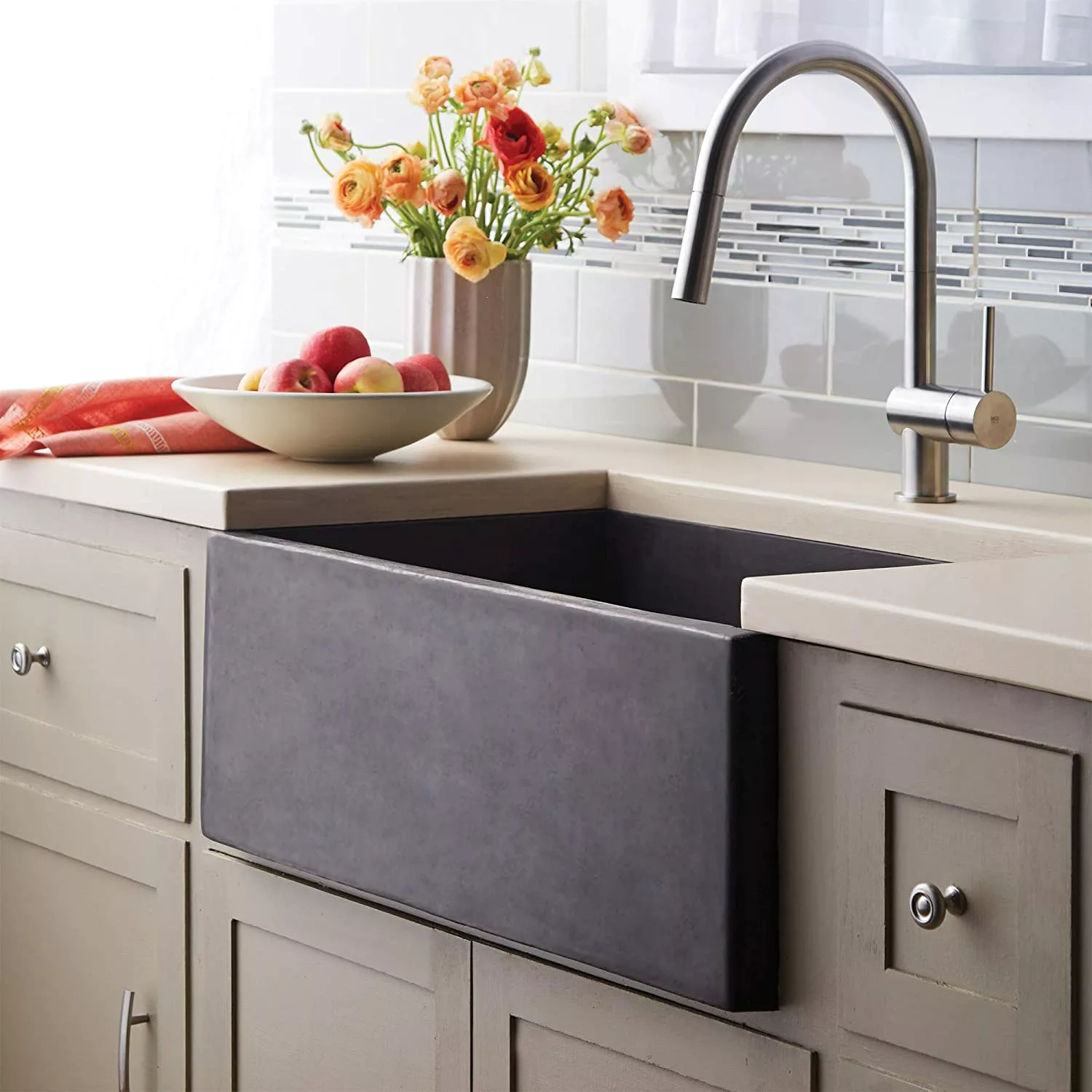
Stone kitchen sinks are sinks that are made from natural stone materials, such as granite, marble, or soapstone.
Stone kitchen sinks are a strong and durable option that offers a unique look to your kitchen.
Features
- Stone is a strong and durable material that is resistant to chips, cracks, and scratches. This makes it a great choice for a sink that will see daily use.
- Each piece of stone is unique, so no two sinks will look exactly the same. This gives your kitchen a one-of-a-kind, natural look.
- Stone is a good conductor of heat, so you can place hot pots and pans in the sink without worrying about damaging them.
- Stone sinks may require sealing to prevent staining, but they are otherwise low maintenance. Simply wipe the sink down with soap and water to keep it looking its best.
- Stone sinks can be more expensive than other materials, such as stainless steel or porcelain. However, many people are willing to pay more for a stone sink’s unique look and durability.
Pros/Cons
Pros:
- Aesthetic Appeal.
- Heat-resistant.
- Durable.
- Easy to Clean.
Cons:
- Expensive.
- Heavy.
- Prone to Scratches.
- They are porous and can absorb liquids, which can lead to staining or discoloration.
- Limited Color Options.
12. Solid Surface
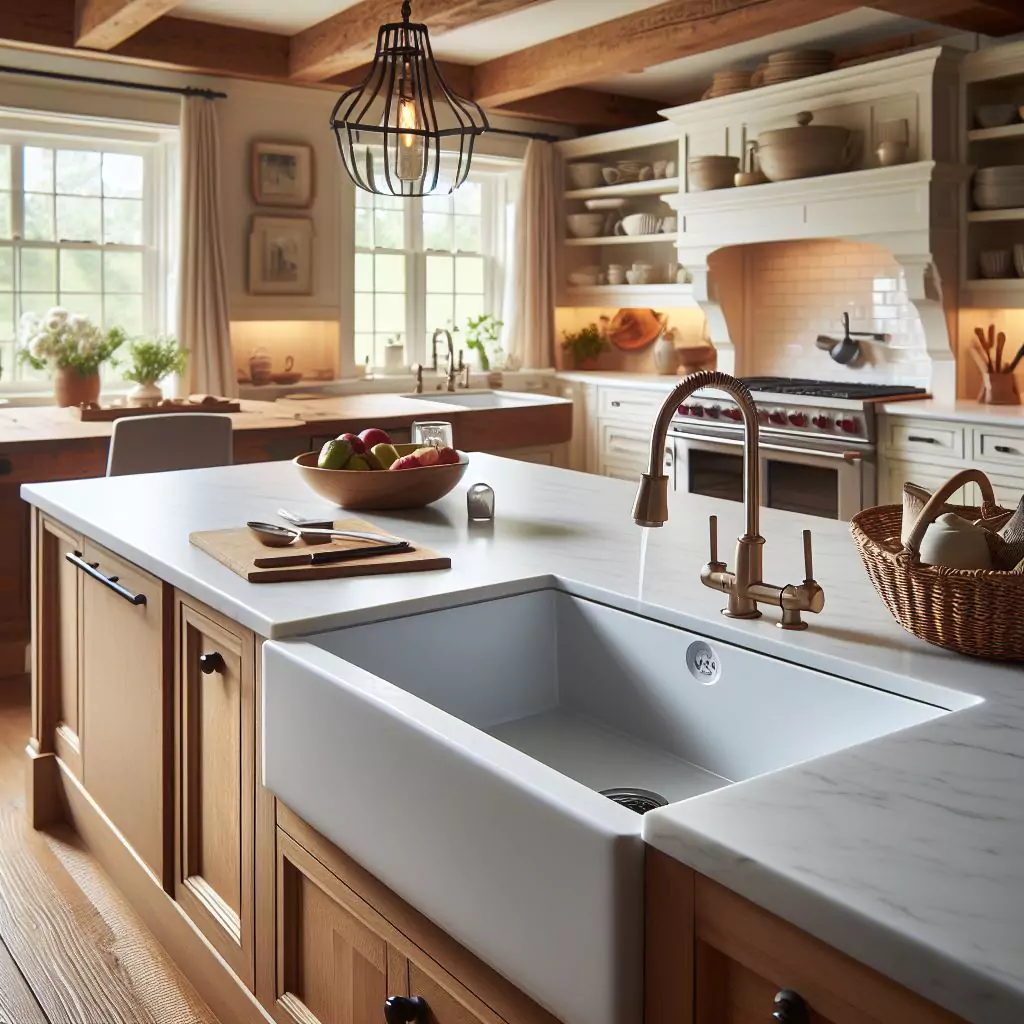
Solid surface kitchen sinks are sinks made from a material that is composed of a mixture of acrylic and aluminum trihydrate.
They offer a seamless and customizable look that is easy to clean and durable.
Features
- Solid surface sinks can be molded into a seamless, one-piece design, giving your kitchen a clean, modern look.
- Solid surface sinks can be custom-made to fit the exact measurements of your kitchen, making them a great choice for unique or irregularly shaped kitchens.
- The smooth surface of solid surface sinks is non-porous and easy to clean, making it resistant to bacteria and staining. Simply wipe the sink down with soap and water to keep it looking clean and new.
- The solid surface material is resistant to chips, cracks, and scratches, making it a durable option for your kitchen sink.
- Solid surface sinks can be integrated with the countertop for a seamless look, and they come in various colors and styles to match your kitchen décor.
Pros/Cons
Pros:
- Aesthetic Appeal.
- Easy to Clean.
- Non-Porous.
- Customizable.
- Renewable.
Cons:
- Expensive.
- Prone to Scratches.
- Sensitive to heat.
- Some chemicals, like bleach or oven cleaner, can damage the surface of solid surface sinks, which can cause discoloration or cracking.
13. Marble
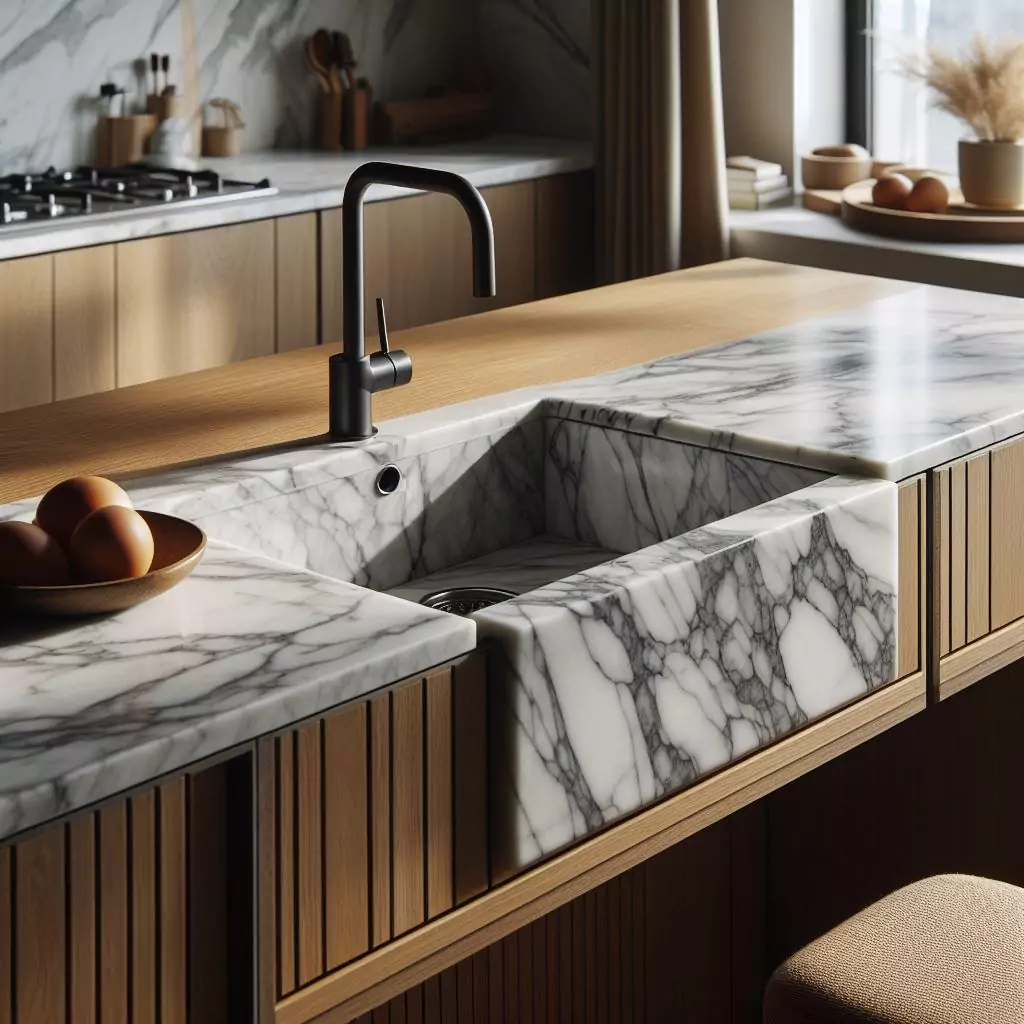
Marble kitchen sinks embody timeless luxury with their elegant, natural aesthetic. Quarried from stone, each sink is unique, showcasing distinct veining patterns.
While durable and heat-resistant, marble requires careful maintenance to preserve its pristine appearance, making it an ideal choice for those who appreciate refined, sophisticated kitchen design.
Features
- Timeless Luxury: Marble sinks offer an enduring, upscale aesthetic, elevating the overall kitchen design.
- Unique Veining: Each sink is distinct, showcasing natural and intricate veining patterns, adding character and individuality.
- Durable Construction: Quarried from stone, marble sinks are durable and resistant to wear, ensuring long-lasting performance.
- Heat Resistance: Marble naturally withstands high temperatures, making it suitable for hot kitchen tasks and cookware.
- Refined Appearance: The elegant and polished surface of marble contributes to a sophisticated and refined ambiance in the kitchen.
- Variety of Colors: Available in a range of colors, marble sinks provide versatility to complement diverse kitchen styles.
- Easy to Shape: The malleability of marble allows for creative and customizable sink designs, catering to individual preferences.
- Natural Coolness: Marble’s natural coolness makes it a comfortable surface for kitchen tasks and adds a refreshing touch to the environment.
Pros/Cons
Pros:
- Timeless, luxurious aesthetic.
- Unique, natural veining patterns.
- Durable, and resistant to wear.
- Withstands high temperatures.
- Refined and sophisticated appearance.
Cons:
- Requires careful maintenance.
- Susceptible to staining.
- Higher initial cost.
- Not entirely scratch-resistant.
- Limited color options.
Factors to Consider When Choosing the Best Kitchen Sink Material
When choosing the best kitchen sink material, there are several factors to consider. Here are some of the most important ones:
1. Durability
The kitchen sink is one of the most frequently used items in the kitchen, so it’s important to choose a strong and durable material that can stand up to daily use.
2. Maintenance
Consider the level of maintenance required for each material. Some materials, like stainless steel, are easy to clean and require minimal maintenance, while others, like copper, require more attention to keep them looking their best.
3. Cost
The cost of the sink is an important factor to consider. Materials like stainless steel are more affordable, while others, like copper, can be more expensive.
4. Style
The sink should complement the overall style of the kitchen. Consider the sink’s color, shape, and design when choosing the material.
5. Sink Shape
Different sink shapes are better suited for different materials. For example, undermount sinks work best with solid surface materials like granite or quartz.
6. Environment
Consider the environmental impact of the material. Some materials, like stainless steel, are recyclable, while others, like porcelain, may not be.
FAQs
What are the maintenance requirements for stone kitchen sinks?
Stone kitchen sinks may require sealing to prevent staining, but they are otherwise low maintenance. Simply wipe the sink down with soap and water to keep it looking its best.
What is the difference between stainless steel and composite granite sinks?
Stainless steel sinks are made from a single sheet of metal and are known for their durability and ease of maintenance. Composite granite sinks are made from a mixture of acrylic and stone materials and offer a unique look and resistance to staining.
Wrap Up
Choosing the best kitchen sink material is an important decision that will impact the look and functionality of your kitchen for years to come.
Each material has its unique pros and cons, and the right choice for you will depend on your specific needs and preferences.
Whether you are a fan of the classic look of cast iron, the durability of stainless steel, or the unique style of copper, there is a kitchen sink material that is perfect for your kitchen.
When making your decision, be sure to consider factors such as the sink’s appearance, durability, ease of maintenance, and resistance to staining and bacteria.
By doing your research and considering your specific needs, you can choose a kitchen sink that will look great and provide years of reliable and functional service.
Editorial Note: Our Research Approach
At Guyo’s Guide, we’re committed to delivering valuable insights even when personal experiences are limited. While we haven’t individually used a few of the sink materials listed, our team has conducted thorough research.
How We Gathered Information:
- In-depth analysis of product specifications and user reviews.
- Curated insights from users who have shared their experiences online.
- Consultation with industry experts and professionals in the home improvement and kitchen appliance space.
Your Input Matters: We value transparency and invite you to contribute your experiences or insights to enrich our ongoing discussions. Your feedback is an integral part of our commitment to providing reliable information.

